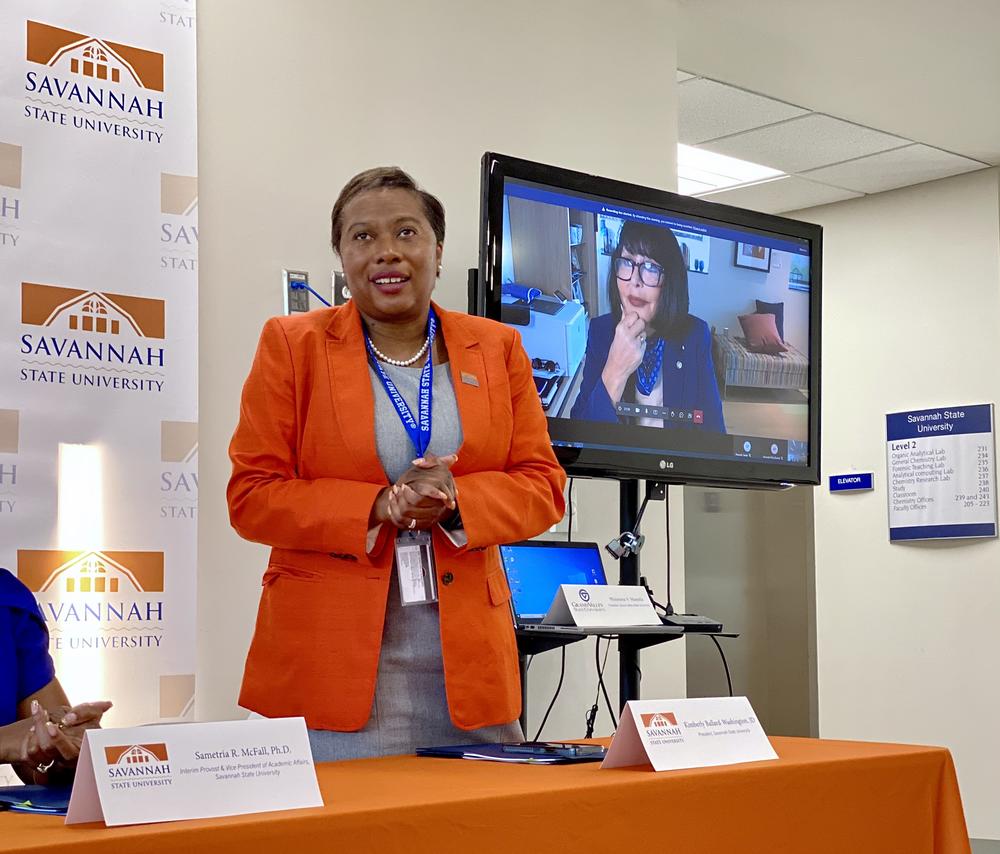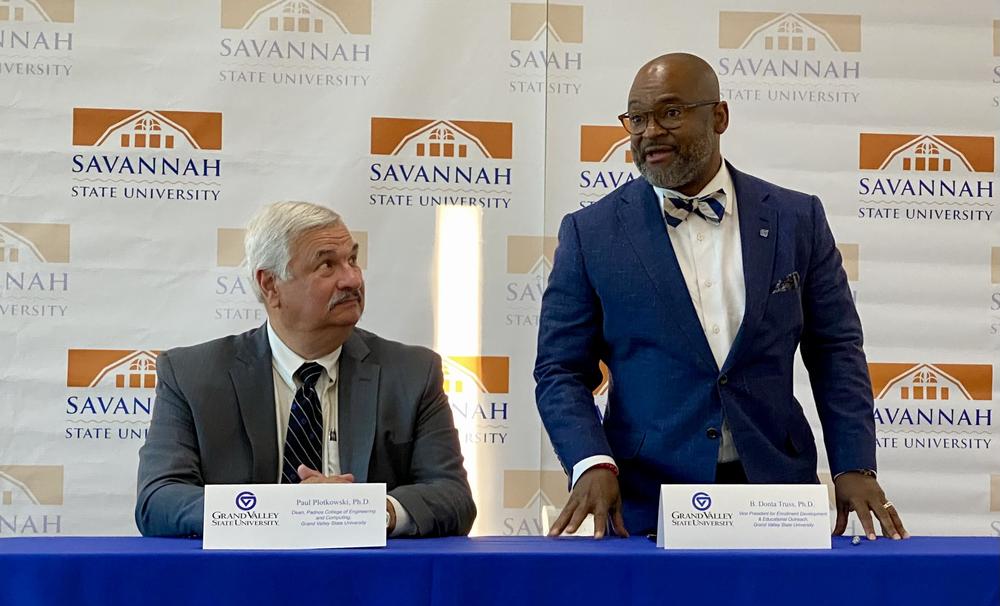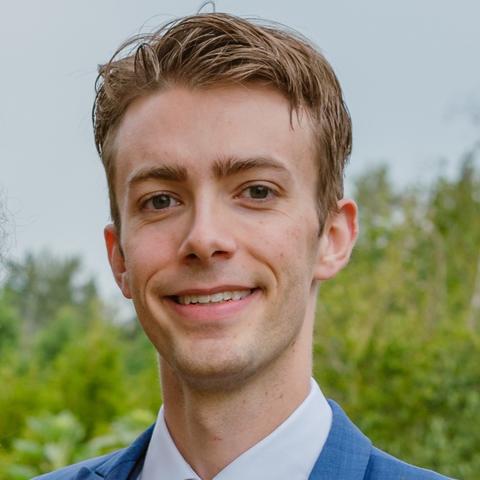
Caption
Savannah State University president Kimberly Ballard-Washington speaks at a signing ceremony at the HBCU's campus, as Grand Valley State University president Philomena Mantella watches remotely from her office near Grand Rapids, Michigan.
Credit: Benjamin Payne / GPB News


